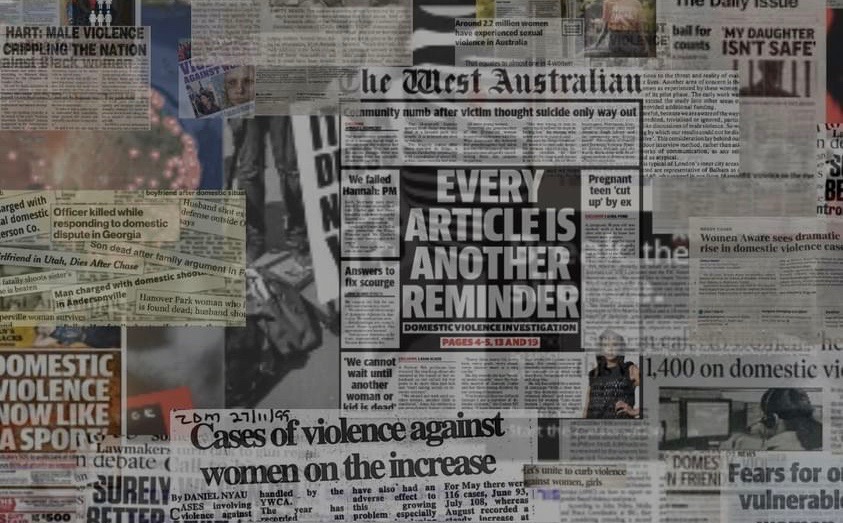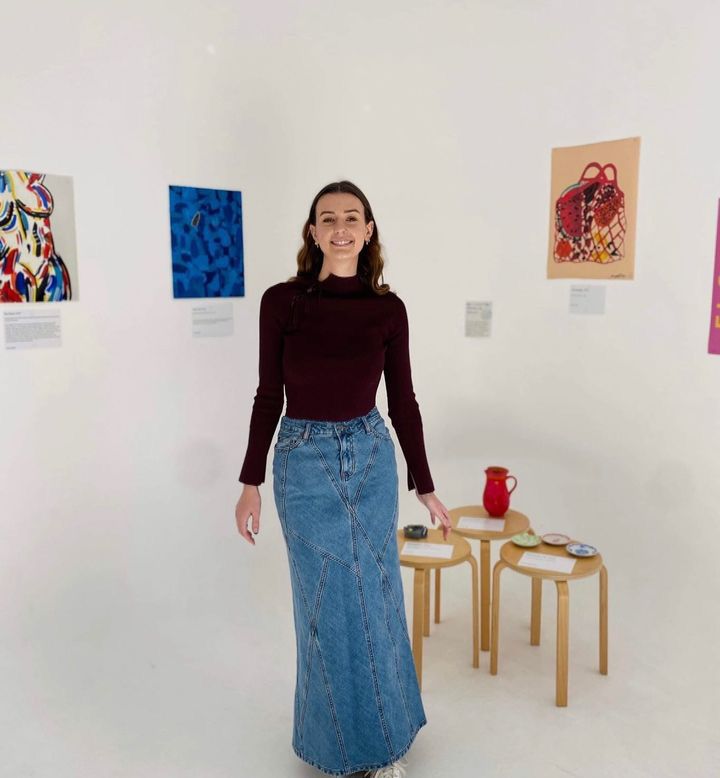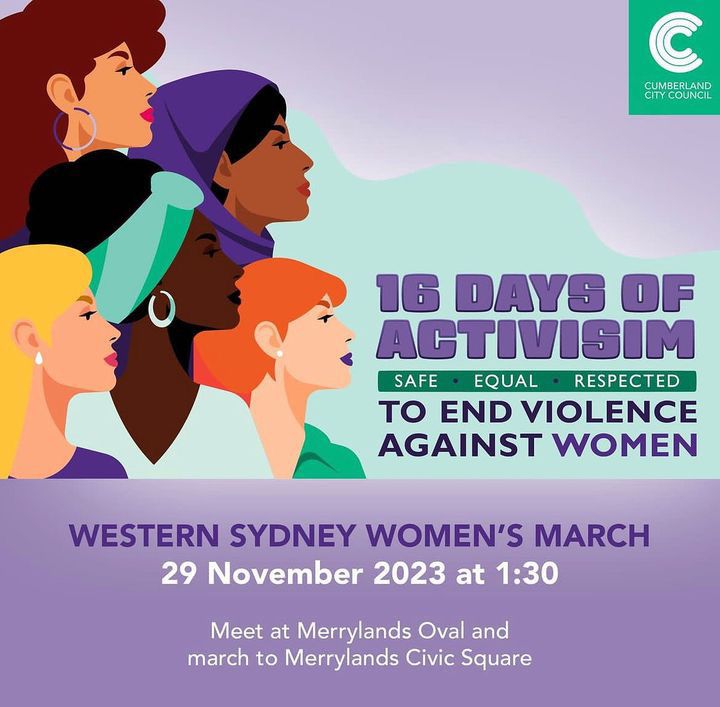
Ending Violence Against Women
Interviewee: Maggie Ellis
Photos: Maggie Ellis
Content Warning: The following content discusses violence against women.
Maggie and I discuss her work in domestic violence advocacy. I admire her unencumbered energy in this fight. It’s hard to keep the fight, keep the optimism when women are dying almost every day. In 2023 58 women have (allegedly) been killed from violence against women – so far. We’re set on fire in our own cars or murder at our place of work. We’re not safe anywhere, least of all in our own homes.
Hi Maggie, what did you get up to today? You’re always so busy changing the world, so what was todays focus?
Today I spent my time completing work for my role as Co-President of the Macquarie University Women’s Collective and working on the first draft of the speech I will be giving as a keynote speaker at the Western Sydney Women’s March in a couple of weeks’ time.
Can you tell us a bit about you and the work you do?
I am a dedicated activist, committed to advancing women’s rights, safety, and sexual and reproductive health. I am in the third year of my Bachelor of Arts – majoring in gender studies and minoring in social justice, anthropology, and education. I plan on commencing a Bachelor of Philosophy / Master of Research next year, with the goal of producing a thesis on the drivers of violence against women. I am the Co-President of the Macquarie University Women’s Collective, an organisation which champions women’s rights, equality, and intersectionality. As a committed advocate to end gender-based violence, I use my voice to raise awareness of the prevalence and drivers of violence against women and demand enduring systemic change.

What is the prevalence of violence against women in Australia, and what trends or nuances have you observed in your advocacy work on this issue?
It is a deeply concerning truth that violence against women remains one of the most widespread and systematic human rights violations worldwide. Violence against women can involve any form of gender-based violence that inflicts or has the potential to cause physical, sexual, or psychological harm or anguish, including instances of threats or coercion, whether in public or private spheres of life. The Australian Institute of Criminology has found that in Australia, on average of 125 women are murdered every year – meaning that more than one woman is killed every week. Overwhelmingly, it is men who kill women— male offenders are responsible for killing approximately 94% of adult female victims. Additionally, the Bureau of Statistics has concluded that approximately 76% of female victims were murdered by someone they knew. There is a clear underlying trend with violence against women in this country – the gender of the perpetrator and the ‘known to each other’ commonality. In other words, women are almost always murdered by someone they knew, and the killer is almost always male.
How do societal norms or cultural factors contribute to the perpetuation of gendered violence, and how do you address these challenges in your advocacy work?
There is an undercurrent of aggression and acceptance of violence against women in Australia, and it is absolutely terrifying. The promotion of patriarchal ideologies and norms that reinforce male dominance and female subordination contribute to justifying and condoning violence against women. Embedded power imbalances, rigid gender roles, notions of dominance, and the acceptance of violence as a means of control contribute to the cycle of normalising and trivialising gender-based violence. This harmful culture is further perpetuated through the promotion of anti-feminist rhetoric in groups such as the manosphere – a network of online men’s communities, and a breeding ground for hostility and aggression, seeking to promote misogynist and sexist beliefs. In recent years we have seen an overwhelming increase in support for the manosphere and misogynistic influencers online, such as the likes of Andrew Tate, who have disturbingly captured the interest and support of young people – most notably young men and boys. The narrative within the manosphere embodies an intensely misogynistic perspective, steeped in toxic masculinity and a belief in an entrenched patriarchy. This worldview often fosters a sense of entitlement among men, leading some to view rejection as justification for violence against women. Through my work, I aim to place a significant focus on recognising the role of toxic masculinity as a driver of violence against women, using my voice to educate and raise awareness on the correlation between addressing toxic masculinity and ending violence against women.

Why do you think (for so long) Violence against women has been seen as only a feminist issue?
Violence against women has historically been framed as a ‘women’s issue’ since the victims are female – in fact even the term ‘gender-based violence’ is subconsciously thought of as a ‘women’s issue’, due to the disproportionate number of female victims. The majority of people who speak out against gender-based violence are women. Additionally, the historical response to violence against women has involved educating women about violence – teaching women to be careful, noticing the warning signs, and empowering them to speak out or fight back. Whilst this education is by all means valuable, how is teaching women and girls about violence against women going to stop it? When we interpret ‘gender-based violence’ to be a ‘women’s issue’, we focus on the women, who are most often the victims, when we should focus on the men, who are most often the perpetrators. In our society, victim-blaming remains a prevalent issue. Time and again, victims of violence—predominantly women—are subjected to questioning of their moral character. Victims are questioned about their attire, relationships, behaviours, alcohol consumption, and overall actions, often with the implicit suggestion that they are somehow are fault for the violence inflicted upon them. Whilst victims of gender-based violence are predominantly women, the assumption that gender-based violence is a ‘women’s issue’ gives men an excuse not to pay attention – and when a problem is seen as a ‘women’s issue’, women are left to find a solution.

What do you believe are the most urgent changes needed in Australia to help end violence against women?
The urgency in addressing gender-based violence cannot be overstated, and we can’t keep having the same conversations about violence against women without seeing radical change. In order to end gender-based violence, we must take urgent action to change the cultural narrative in which aggression and acceptance of violence against women is normalised. Additionally, there is a crucial need to shift the conversation on preventing gender-based violence away from focusing on how women should alter their behaviour to protect themselves. Instead, the conversation must centre on encouraging men to modify their behaviour, thereby deconstructing the foundation of the culture that allows violence against women to persist. Holding yourself and others accountable, actively engaging in conversations, spreading awareness, standing by victims/survivors, and confronting harmful behaviours are vital actions we can all take to prevent violence against women before it starts.
Additionally, there is an imperative need to change the language used when discussing violence against women. Often – most notably within media – language is used to explain away acts of male violence against women as being merely a ‘brain snap’. We need to stop making excuses for violent men and stop watering down and softening language in an attempt to garnish compassion for the criminal, whilst dismissing the victim’s experience. Using language that aims to garner sympathy for the perpetrator allows victim-blaming to persist, fostering a culture that diminishes the severity of violence against women and shifts blame onto victims. When addressing violence against women, it’s vital to use language that forces perpetrators to be held accountable, unequivocally stating that there is no excuse whatsoever for violence against women.
It is essential that when considering gender-based violence, an intersectional approach is applied. It is crucial to understand the intersection of gender with other inequalities/oppressions in the context of violence against women and girls. As a result of these intersecting forms of discrimination and oppression, some groups of women (such as women of colour, members of the LGBTQIA+ community, Aboriginal and Torres Strait Islander women, or women with disabilities), experience different, more frequent, or more severe violence and face unique challenges when seeking justice or support to the compounded effects of multiple forms of discrimination or abuse. The only effective method of eradicating gender-based violence involves an intersectional approach, so that we can end violence against all women.
How do you collaborate with other organisations or individuals to amplify your efforts in advocating against gendered violence?
As Co-President of the Macquarie University Women’s Collective, I work alongside a dedicated team, committed to raising awareness of violence against women and using the collective’s platform to educate, share resources, and demand change. A focus area of the Macquarie University Women’s Collective’s advocacy efforts is addressing the growing epidemic of sexual violence at universities. Our collective has been at the forefront of discussions, campaigns, and initiatives that advocate for improved student safety at Australian universities, providing victims/survivors of sexual violence with resources and support services, working alongside Macquarie University bodies such as Respect Now Always to develop improved policies and action plans, and designing initiatives to educate the university community and ensure a safer and more inclusive educational environment for all students.
In your opinion, how can education and awareness play a role in preventing and addressing gendered violence in Australia?
Education and awareness are paramount to effectively ending violence against women in Australia. By integrating topics related to healthy relationships, gender equality, and recognising early signs of abusive behaviour into school curriculums, education can empower young people to challenge harmful gender norms and confront unacceptable behaviours. By dismantling these deeply rooted attitudes and fostering a culture of accountability and respect from childhood, we lay the foundation for a future generation that rejects misogyny and toxic masculinity and embraces equality and respect. Furthermore, raising awareness through community initiatives, media campaigns, and public discussions helps dismantle misconceptions, prompts open dialogues, and encourages bystander intervention.
How can people actively engage with and support your work towards ending violence against women in Australia?
Violence against women can be prevented. It requires a collective commitment to shatter the silence, challenge behaviours that perpetuate violence against women, and foster a world in which women can live free from fear of violence. Spreading awareness by sharing advocacy campaigns, resources, and educational materials within your social circles and communities can assist significantly in increasing awareness and support. Additionally, volunteering or donating to organisations who provide support services for victims/survivors, distribute resources, and advocate for change enables these organisations to expand their reach and amplify their messages. Finally, engaging in conversations that challenge harmful stereotypes, promote respect, and advocate for women’s rights helps cultivate a societal shift towards a future free from violence against women.
There are many incredible organisations, initiatives, and events you can support to join the fight to end violence against women in Australia. Below I have listed a few:
Organisations:
Full stop Australia
Website https://fullstop.org.au/
Instagram @fullstopaustralia
Women and Girls Emergency Centre
Website https://www.wagec.org.au/
Instagram @womens.girls.emergency.centre
White Ribbon Australia
Website https://www.whiteribbon.org.au/
Instagram @whiteribbonaust
Our Watch
Website https://www.ourwatch.org.au/
Instagram @ourwatch
The RED HEART Campaign / Australian Femicide & Child Death Map
Website https://australianfemicidewatch.org/mapping-femicides/
Instagram @sherelemoodyfemicidewatch
Events:
Western Sydney Women’s March: 16 Days of Activism to End Violence Against Women
https://www.cumberland.nsw.gov.au/activism
Let’s End Domestic Violence Vigil – Sydney
https://whatson.cityofsydney.nsw.gov.au/events/lets-end-domestic-violence-vigil
Safe.Everywhere.Always Walk to End Violence Against Women
Looking ahead, what do you hope to achieve or see change in the landscape of addressing violence against women in Australia in the coming years?
Primarily, I hope to witness a significant cultural shift where societal attitudes reject all forms of violence, fostering an environment where respect and equality are fundamental. I hope to see enhanced legislative measures that offer robust protection for victims/survivors, holding perpetrators accountable while ensuring accessible and supportive pathways to justice. Moreover, I envision a comprehensive support network with increased resources and specialised services, catering to diverse needs and supporting and empowering victims/survivors. Education will remain pivotal, with widespread programs challenging harmful norms and promoting healthy relationships, thereby seeking to prevent violence against women from its root. Ultimately, I aspire to witness a society where every individual is committed to ending violence against women, forging a future where safety, respect, and equality are non-negotiable rights for all. However – true justice means no victims of violence against women.
Tell us about this protest – to end violence against women – coming up.
I will be attending the Western Sydney Women’s March as a keynote speaker. The Western Sydney Women’s March has been organised by the Cumberland City Council in partnership with the Jesuit Refugee Service Australia, and the Domestic and Family Violence Community of Practice, to raise awareness for the 16 Days of Activism against Gender-Based Violence, which takes place from the 25 November to the 10 December. The Western Sydney Women’s March is taking place on Wednesday 29 November from 1:30pm. Attendees will be marching from Merrylands Oval to Merrylands Civic Square where there will be speeches from keynote speakers, performances, food, and drinks. There will also be information tables with useful resources available.
I will be speaking on how toxic masculinity can act as a driver of gendered violence, emphasising the correlation between addressing toxic masculinity and ending violence against women. I feel very privileged that I will get to share my work with such an incredible group of people who share my commitment to ending the epidemic of violence against women, and I look forward to being part of an event which aims to raise awareness and take a stand against gender-based violence. If you’re able to, I encourage you to attend the march and stand with me to demand an end to violence against women.
Find out more and RSVP to the march: https://www.cumberland.nsw.gov.au/activism
If you or someone you know needs help, please reach out:
-
1800 Respect National Helpline: 1800 737 732
-
NSW Sexual Violence Helpline: 1800 424 017
-
NSW Domestic Violence Helpline: 1800 656 463
-
Rainbow Sexual, Domestic, and Family Violence Helpline: 1800 497 212
-
13 YARN: 13 92 76
For More: ‘Not All Men‘

0 comments